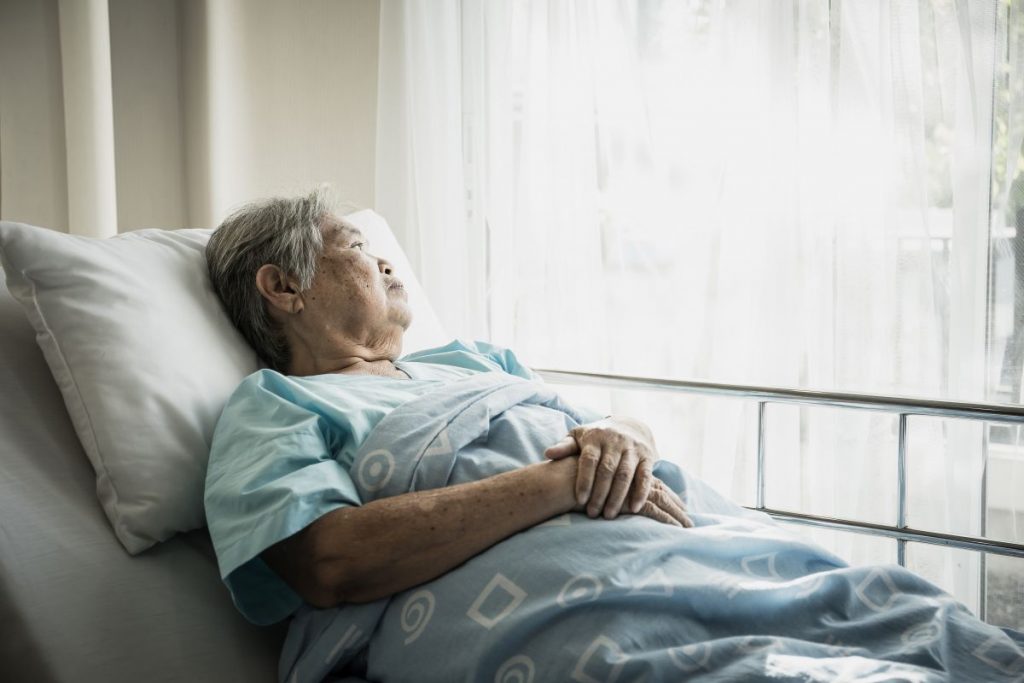It’s well known in the nursing home industry that the presence of bedsores in patients indicates a facility is understaffed, resulting in neglect. Unfortunately, in New York City, a vast majority of these skilled nursing facilities fall short on providing enough care for their residents, according to a recent City Limits investigation. The news outlet found that almost three-quarters of these facilities rated “Below Average” or “Much Below Average” for staffing by the Centers for Medicare and Medicaid Services, the federal agency that oversees the nursing home industry.
“Statistics like these reaffirm how families need to be on high alert if their loved ones live in a nursing home,” said John Dalli, a partner in the law firm Dalli & Marino LLP. “For example, bedsores are signs of illegal neglect and abuse, but are hard to find if you don’t suspect them.”
What Is A Bedsore?
Sometimes called a pressure ulcer, a bedsore is “localized damage to the skin and underlying soft tissue usually over a bony prominence,” according to the National Pressure Ulcer Advisory Council.
Bedsores occur when a person does not move from one position for an extended period of time. Staying in just one position can put pressure on certain areas of the body, reducing the blood supply to the skin and tissues under the skin. A sore may form if the blood supply gets to low.
Who Is At Risk For Bedsores?
Over 2.5 million people develop bedsores in the U.S. each year. These wounds can develop relatively quickly, in as little as two to three hours, according to Johns Hopkins. Anyone who stays in one position for a prolonged period of time can be at risk. This would include nursing home residents who are immobile or bedridden as well as people who cannot feel pain because of diabetes, circulation problems and malnutrition.
“If your parent is in a nursing home, the staff should provide the care that they require,” said Dalli. “If residents are unable to move themselves, their treatment should include being moved frequently. Otherwise, it’s a sign of elder abuse if bedsores develop.”
What Complications Can Result From Bedsores?
A bedsore that is not properly treated can become infected. And if the infection spreads, other symptoms may develop including fever, weakness, rapid heartbeat, chills and mental confusion. Dangerous complications can also include sepsis, cellulitis and bone or joint infections, according to the Mayo Clinic.
How Can I Check For Bedsores?
Bedsores occur in certain areas of the body, often in bony parts that don’t have much fat to pad them, including the lower back, heels and hips. These wounds can also occur on the base of the spin (tail bone), the shoulder blades, the backs and sides of the knees, and the back of the head. There are four stages of bedsores, ranging from red skin, to abrasions, on up to large open wounds that become susceptible to infection.
What Should I Do If I’ve Spotted Bedsores?
You need to take your loved one to a doctor right away for proper medical care. If the sore has developed in a nursing home, the staff and physician there should be alerted immediately.
Can I Bring A Lawsuit If A Loved One Has Suffered Bedsores?
It depends. If the bedsore developed as a result of negligent treatment, then you may be able to bring a lawsuit against the medical professionals or facility responsible for the injury. For example, if your loved one was immobile and not turned on a regular basis at the nursing home and developed a bedsore, then you may have a claim against the facility for negligence.
Contact Nursing Home Abuse Attorneys Dalli & Marino
If your loved one has suffered from bedsores at a nursing home facility in New York and you suspect the cause was negligent care, call the law firm of Dalli & Marino for a free case evaluation. Our attorneys have extensive experience fighting on behalf of those who have been subject to abuses while in residential care facilities. You can contact us by phone at 1-888-465-8790 [Toll-Free] or complete the CASE EVALUATION FORM on our Contact Page.



